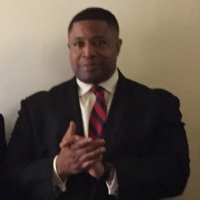 Independence Felony Lawyers, Missouri
Independence Felony Lawyers, Missouri
Not enough matches for Independence Felony lawyer.
Below are all Independence Criminal lawyers.
Sponsored Lawyers
1-10 of 67 matches
Criminal, Motor Vehicle, DUI-DWI, US Courts, Felony
Andrea Welch is the President of the Eastern Jackson County Bar Association (board member since 2001, member since 1999). She is also the President of the Missouri Municipal Prosecutors Association (member since 2000). Andrea has been a member of the Kansas City Metropolitan Bar Association Municipal Court Committee since 1999 and a member of the Missouri Criminal Defense Attorneys since 2001. She has been a Sugar Creek Optimist Club member since 2007 and on the Sugar Creek Parks and Recreation Committee since 2005.
(more)Criminal, Divorce & Family Law, Traffic
Roderick E. Smith is a practicing lawyer in the state of Missouri handling criminal defense matters.
(more)Traffic, Criminal, Wrongful Death, Car Accident, Accident & Injury
Tamara Putnam has been practicing law for over 25 years in the Kansas City metropolitan area. She attended the University of Missouri at St. Louis to earn a Bachelor’s Degree in Economics with Cum Laude Honors. She earned a four year athletic scholarship as a member of the University of Missouri–St. Louis NCAA Women’s Basketball team. Tamara then attended Washburn University School of Law to obtain her Juris Doctorate. While attending Washburn Law School, Tamara Putnam became a published author. The Washburn Law Journal published her law review article with co-author Jonathan Lautt. Will Debtors Win the Battle as Creditors Win the War?: Retroactive Recovery of Attorney Fees in Consumer Credit Contracts in Kansas, p. 556-572 (1.5 MB PDF) Tamara I. Putnam & Jonathan J. Lautt Tamara worked for the Jackson County Prosecuting Attorney’s Office. She worked as a drug prosecutor. She was promoted to the lead prosecutor of the Violent Gang Crime Unit. She worked closely with the Drug Enforcement Unit (DEU) and Street Narcotics Unit (SNU) to prosecute crimes related to illegal production, transfer, sale and possession of controlled substances. As head of the Gang Unit, she focused on the prosecution of violent offenses committed by suspected gang members, including assaults, robberies, armed criminal action and shooting into a dwelling. After a successful term as a prosecutor, Tamara moved into private practice with a focus on criminal defense. As a former prosecutor, she has a deep understanding of the strategies used by the prosecution and law enforcement to obtain convictions. She prepares for the prosecutor’s tactics and walks into court prepared to defend her client’s case. Tamara later expanded her practice to include personal injury. She litigates personal injury cases in both Missouri and Kansas from a simple slip and fall to wrongful death. She has an unwavering commitment to assist people who have been injured due to the negligent actions of others. She takes great pride in taking on the profit motivated insurance companies and holding them accountable to fully compensate her clients. Tamara has focused her practice on criminal defense and serious personal injury her entire career. She has handled countless felonies charges in State Court as a prosecutor and now as a criminal defense counsel. She also focuses her practice on litigation of serious personal injury accidents. Tamara has a fierce reputation as an outstanding advocate excelling in both criminal defense and personal injury.
(more)Personal Injury, Traffic, Criminal, Wills & Probate, DUI-DWI
Bryan Gentry, the founder of The Gentry Law Firm, has represented numerous clients in domestic, criminal, civil & traffic matters. Bryan was born and raised in south Kansas City, Missouri. He received his undergraduate and law degrees from the University of Missouri in Columbia. In 2016, he joined the Jackson County 16th circuit court as a law clerk for Division 34 under the honorable judge Susan E. Long. For nearly 3 years, he was instrumental in resolving thousands of cases spanning across criminal, civil, domestic and traffic matters. He managed multiple dockets, drafted orders, reviewed pleadings, and assisted in issuing orders, summons and warrants. During this time, Bryan gained substantial rapport with the bench and local legal community. After spending several years with the Jackson County circuit court, Bryan practiced civil litigation at a local Kansas City law firm, where he honed his legal skills around contracts and collections. In 2020, amidst a global pandemic, Bryan decided to open his own firm so he could better serve his own community. He started The Gentry Law Firm to be a resource and advocate for his community. He navigates his clients through the Kansas City legal system using a detail-oriented approach to get the best possible results for his clients. Bryan is a compassionate and down-to-earth legal counsel who will manage the stress of your case enabling you to focus on moving forward with your life. Bryan holds an active Missouri Bar license and is a member of the Kansas City Metropolitan Bar Association.
(more)








